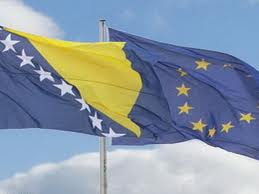By: Simon Miles
It has long been acknowledged that Russia possesses a powerful military; but equally broadly accepted that it is in dire need of modernization. Of late, the Russian government of Dmitri Medvedev and Vladimir Putin has been taking steps to rectify this defect and bring the Russian military in line with the standard of modernity in NATO countries. Most recently, this necessitated obtaining NATO-standard materiel directly from one of the Alliance’s founding members: the French Republic.
Moscow and Paris have signed an agreement to build a total of four Mistral-class amphibious assault vessels for the Russian Navy. France currently operates two Mistral vessels, and has ordered a third using economic stimulus funds. Such a craft is an important tool of power projection, carrying up to 16 helicopters (including attack helicopters like France’s Tiger or Russia’s Ka-52). Their main operational use, however, are their four landing barges or two medium hovercraft which deliver armored vehicles, tanks, and soldiers to the shore. Vessels of this class are equipped with a 69-bed hospital, and could be used as amphibious command ships as well.
For Russia, this is an important procurement milestone—the first major arms import deal since the dissolution of the Soviet Union in 1991. It marks an about-face in procurement strategy, which heretofore did not envision the construction or acquisition of large ships before 2012. During the 2008 war with Georgia, Russia was unable to gain control of Georgia’s coastal regions: a shortcoming which deploying a vessel such as the Mistral would address directly. Russian navy chief Vladimir Vyssotski last year declared that the Georgia conflict could have been resolved in “40 minutes and not 26 hours” if his forces had had the ships at the time. Domestically, this acquisition will enhance Russia’s own maritime security, particularly in the Baltic and Black Seas.

The new head of military procurement, Deputy Prime Minister Dmitry Rogozin (formerly Russia’s Ambassador to NATO), has been charged by Putin with marshalling the “three trillion roubles earmarked for the modernisation of defence industry enterprises, which means the purchase of new equipment and the latest technologies, and bringing in fresh blood, promising personnel capable of using that equipment to strengthen our country’s defensive capabilities.”
The acquisition of the Mistral is therefore a significant boon to Russian shipbuilding as an investment in the future. Russia’s input to the construction of the first Mistral-class warship will be 20% and 40% for the second. The third and fourth ships are to be built in Russia, whose share of labour input will subsequently rise to 80%. The construction of such vessels engender confidence in the flagging shipbuilding industry, which suffered a recent setback as the nuclear-powered submarine Yekaterinburg caught fire during repair work in dry dock at Roslyakovo on 29 December 2011, injuring 11 workers and putting it out of commission until the summer of 2014. The acquisition of French expertise and its transfer to Russian shipyards will therefore, it is hoped, reinvigorate shipbuilding and the defence industry at large. Finally, gaining hands-on access to a NATO-standard vessel (albeit one stripped of much high-sensitivity fittings such as encoding devices etc.) will be an asset for both Russian industry and the military force it supplies.
Not surprisingly, this has deeply worried many other nations. In Washington, the Chair of the US House of Representatives’ Foreign Affairs Committee, Ileana Ros-Lehtinen, declared it “deeply troubling that France, a NATO ally, has decided to ignore the clear danger of selling advanced warships to Russia even as Moscow is taking an increasingly hostile approach toward the US, its neighbors, and Europe itself. Many of our allies in the region, such as Georgia and the Baltic states, have experienced cyber attacks, severe economic pressure, and even invasion by Russia.” She went on to decry “arm[ing] our opponents for profit or for the mirage of cooperation that never materializes.”

This stance is in line with the current angle taken by Republicans vis-à-vis the Obama administration’s “Reset” policy towards Russia. Mitt Romney, the front-runner in the Republican nomination race, has made this one of the key tenets of his foreign policy alternative to that of the Obama administration. Romney has described New START, the treaty under which Russia and the United States have agreed to reduce their nuclear stockpiles, as Obama’s “worst foreign-policy mistake” and thinks that Prime Minister Putin is “rebuilding the Russian empire.”
As Ros-Lehtinen implied, the acquisition of amphibious assault ships by Russia is not at all universally welcome, especially by Georgian authorities. On a visit to Paris, Georgian President Saakashvili admitted that the sale raised concerns, but insisted that he remained confident in France’s support for Georgia in its longstanding dispute with the Kremlin.
Further Reading: Russia Orders French Mistral Amphibious Assault Ships; Russia, France sign warship agreement; How Romney Will Attack Obama; France ready to sell all to Russia save for NATO codes and ICBMs; Ros-Lehtinen Says French Sale of Assault Ships to Russia Threatens Regional Security



